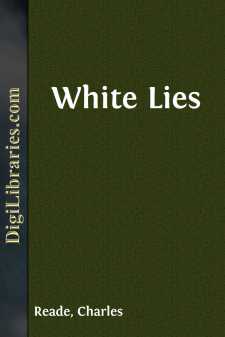Categories
- Antiques & Collectibles 13
- Architecture 36
- Art 48
- Bibles 22
- Biography & Autobiography 815
- Body, Mind & Spirit 144
- Business & Economics 28
- Children's Books 18
- Children's Fiction 14
- Computers 4
- Cooking 94
- Crafts & Hobbies 4
- Drama 346
- Education 58
- Family & Relationships 59
- Fiction 11835
- Games 19
- Gardening 17
- Health & Fitness 34
- History 1378
- House & Home 1
- Humor 147
- Juvenile Fiction 1873
- Juvenile Nonfiction 202
- Language Arts & Disciplines 89
- Law 16
- Literary Collections 686
- Literary Criticism 179
- Mathematics 13
- Medical 41
- Music 40
- Nature 180
- Non-Classifiable 1768
- Performing Arts 7
- Periodicals 1453
- Philosophy 65
- Photography 2
- Poetry 896
- Political Science 203
- Psychology 44
- Reference 154
- Religion 515
- Science 126
- Self-Help 85
- Social Science 83
- Sports & Recreation 34
- Study Aids 3
- Technology & Engineering 60
- Transportation 23
- Travel 463
- True Crime 29
Our website is made possible by displaying online advertisements to our visitors.
Please consider supporting us by disabling your ad blocker.
White Lies
by: Charles Reade
Categories:
Description:
Excerpt
CHAPTER I.
Towards the close of the last century the Baron de Beaurepaire lived in the chateau of that name in Brittany. His family was of prodigious antiquity; seven successive barons had already flourished on this spot when a younger son of the house accompanied his neighbor the Duke of Normandy in his descent on England, and was rewarded by a grant of English land, on which he dug a mote and built a chateau, and called it Beaurepaire (the worthy Saxons turned this into Borreper without delay). Since that day more than twenty gentlemen of the same lineage had held in turn the original chateau and lands, and handed them down to their present lord.
Thus rooted in his native Brittany, Henri Lionel Marie St. Quentin de Beaurepaire was as fortunate as any man can be pronounced before he dies. He had health, rank, a good income, a fair domain, a goodly house, a loving wife, and two lovely young daughters, all veneration and affection. Two months every year he visited the Faubourg St. Germain and the Court. At both every gentleman and every lacquey knew his name, and his face: his return to Brittany after this short absence was celebrated by a rustic fete.
Above all, Monsieur de Beaurepaire possessed that treasure of treasures, content. He hunted no heart-burns. Ambition did not tempt him; why should he listen to long speeches, and court the unworthy, and descend to intrigue, for so precarious and equivocal a prize as a place in the Government, when he could be De Beaurepaire without trouble or loss of self-respect? Social ambition could get little hold of him; let parvenus give balls half in doors, half out, and light two thousand lamps, and waste their substance battling and manoeuvring for fashionable distinction; he had nothing to gain by such foolery, nothing to lose by modest living; he was the twenty-ninth Baron of Beaurepaire. So wise, so proud, so little vain, so strong in health and wealth and honor, one would have said nothing less than an earthquake could shake this gentleman and his house. Yet both were shaken, though rooted by centuries to the soil; and by no vulgar earthquake.
For years France had bowed in silence beneath two galling burdens—a selfish and corrupt monarchy, and a multitudinous, privileged, lazy, and oppressive aristocracy, by whom the peasant was handled like a Russian serf. [Said peasant is now the principal proprietor of the soil.]
The lower orders rose upon their oppressors, and soon showed themselves far blacker specimens of the same breed. Law, religion, humanity, and common sense, hid their faces; innocent blood flowed in a stream, and terror reigned. To Monsieur de Beaurepaire these republicans—murderers of women, children, and kings—seemed the most horrible monsters nature had ever produced; he put on black, and retired from society; he felled timber, and raised large sums of money upon his estate. And one day he mounted his charger, and disappeared from the chateau.
Three months after this, a cavalier, dusty and pale, rode into the courtyard of Beaurepaire, and asked to see the baroness....









